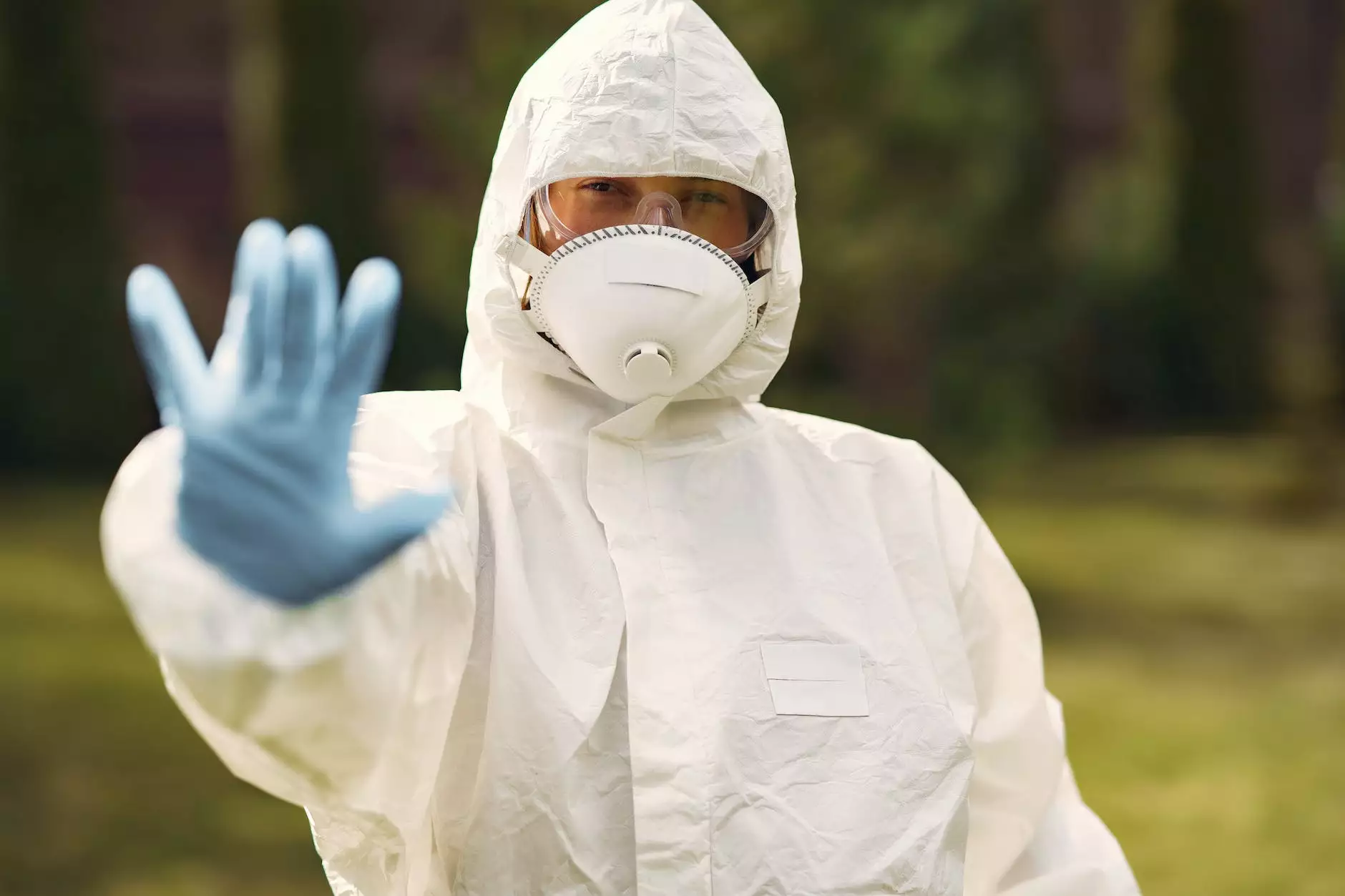Exploring Biohazard Jobs: Opportunities and Insights

The realm of biohazard jobs presents unique opportunities for professionals seeking to make a significant impact in health and safety. These jobs play a crucial role in protecting communities from the dangers associated with hazardous materials, biological contaminants, and other toxic substances. In this comprehensive article, we will delve into the various aspects of biohazard jobs, including what they entail, the training required, the benefits of pursuing this career path, and the growing demand in the industry.
What are Biohazard Jobs?
Biohazard jobs typically refer to positions within the biohazard cleanup industry, which involves safely handling, removing, and decontaminating areas affected by biological hazards. This can include:
- Crime Scene Cleanup: Refers to cleaning sites where violent crimes have occurred, including the removal of bodily fluids and other biological matter.
- Infectious Disease Cleanup: Involves decontaminating areas where infectious diseases have spread, ensuring that all pathogens are safely eliminated.
- Mold Remediation: Entails assessing and removing mold infestations, which can pose serious health risks to individuals.
- Medical Waste Disposal: Involves the safe disposal of medical waste generated by hospitals, clinics, and research facilities.
Responsibilities of Biohazard Professionals
Professionals in biohazard jobs are tasked with numerous responsibilities, all of which are essential for maintaining public health and safety. Here are some common duties:
- Assessment of the Scene: Analyzing the work site to determine the level of risk and the appropriate cleanup procedures necessary.
- Secure the Area: Establishing safeguards and ensuring no unauthorized personnel can enter the contaminated zone.
- Use of Personal Protective Equipment (PPE): Employing appropriate safety gear to protect against biohazardous materials.
- Decontamination: Utilizing specialized cleaning agents and equipment to neutralize and safely remove hazardous substances.
- Disposal of Hazardous Waste: Following regulations for the proper disposal of biohazardous materials, ensuring compliance with health and safety laws.
- Documentation: Keeping detailed records of the cleanup process, including the types of materials removed and the methods used.
Training and Qualifications for Biohazard Jobs
To pursue a career in biohazard jobs, candidates typically need a combination of education, training, and relevant experience. Here are the key qualifications:
- Education: A high school diploma is often required, while some roles may prefer candidates with a degree in environmental science, biology, or a related field.
- Specialized Training: On-the-job training is crucial, often provided by employers or specialized training programs focusing on biohazard handling and cleanup.
- CERTIFICATION: Various certifications, such as HAZWOPER (Hazardous Waste Operations and Emergency Response), may be necessary for certain roles, ensuring safety and compliance with federal regulations.
- Experience: Previous experience in hazardous material handling or related fields can significantly bolster a candidate’s prospects.
- Physical Fitness: Biohazard cleanup can be physically demanding; thus, fitness and the ability to lift heavy objects may be critical job requirements.
The Importance of Biohazard Jobs
The significance of biohazard jobs extends far beyond mere cleanup. These professionals play a pivotal role in:
- Public Health: By effectively managing hazardous materials, they help prevent the spread of infections and diseases, contributing to overall community health.
- Safety and Compliance: Ensuring that hazardous waste is disposed of properly protects both the environment and people from potential harm.
- Psychological Well-being: Crime and trauma scenes can be distressing for communities; by restoring these spaces, biohazard professionals aid in the healing process.
- Emergency Response: In situations like outbreaks or natural disasters, these professionals are crucial in rapidly responding to hazardous contamination issues.
Growing Demand for Biohazard Jobs
The demand for biohazard jobs is on the rise, driven by various factors:
- Increased Regulations: As governments and health organizations implement stricter regulations regarding hazardous waste, the need for trained professionals has surged.
- Public Awareness: Society’s growing awareness of health risks associated with biohazards has led to increased demand for cleanup services.
- Healthcare Expansion: The ongoing expansion in the healthcare sector, coupled with a rise in medical waste, requires more biohazard cleanup professionals.
- Environmental Concerns: With heightened awareness of environmental issues, there is a greater emphasis on ethical disposal practices, creating more job opportunities.
Career Opportunities in Biohazard Jobs
Within the realm of biohazard jobs, numerous career paths are available, each offering distinct opportunities and challenges. Some of these include:
- Biohazard Remediation Technician: These technicians are responsible for on-site cleanup and decontamination.
- Environmental Health and Safety Specialist: Focuses on developing safety policies and procedures related to hazardous materials.
- Medical Waste Management Coordinator: Manages the disposal and documentation of medical waste within healthcare facilities.
- Consultants: Offer advice on best practices for handling and disposing of hazardous materials, often requiring extensive experience and training.
- Training Instructors: Provide education and certification for individuals looking to enter the biohazard cleanup industry.
The Future of Biohazard Jobs
Looking ahead, the future of biohazard jobs appears promising due to the increasing focus on health, environmental safety, and regulation compliance. Key trends shaping this future include:
- Technology Integration: Increased use of technology for tracking hazardous materials and improving cleanup efficiency.
- Continued Education: Continuous learning and training programs will be essential to stay abreast of industry standards and regulations.
- Greater Collaboration: Enhanced partnerships between private cleanup companies, government agencies, and health organizations to ensure effective biohazard management.
- Sustainability Initiatives: An increasing emphasis on environmentally friendly practices and sustainable waste management approaches.
Conclusion
In conclusion, biohazard jobs provide critical services that protect public health and ensure environmental safety. As the demand for these professionals continues to grow, individuals seeking a meaningful career with strong job security and varied opportunities should consider the biohazard cleanup field. With proper training, dedication, and a focus on safety, a career in biohazard jobs can be a rewarding journey that contributes positively to society.
For more information on biohazard jobs and services, visit biohazardplus.com.



